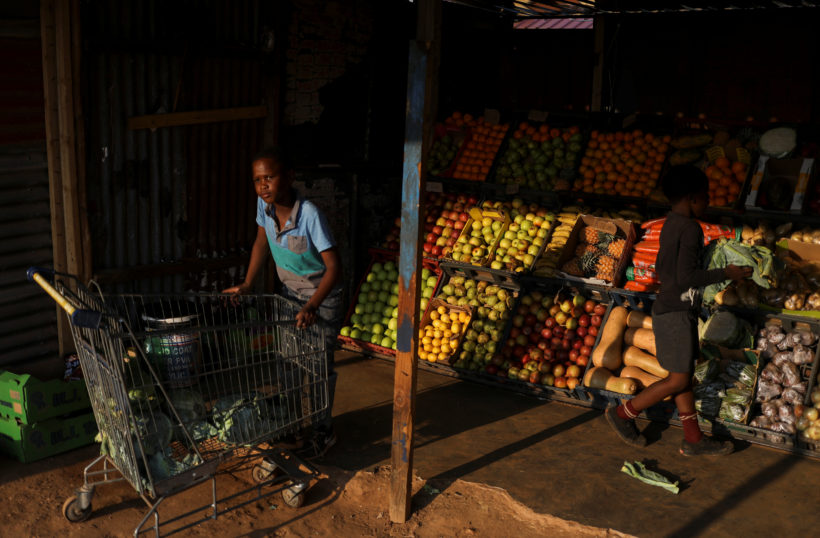
JOHANNESBURG, May 24 (Reuters) – South Africa’s headline consumer inflation slowed more than expected in April to an 11-month low of 6.8% in annual terms, data showed on Wednesday, but analysts and markets still expect the central bank to hike interest rates on Thursday.
Inflation had edged up for two consecutive months in February and March, raising a dilemma for the South African Reserve Bank (SARB) which is trying to keep a lid on price pressures without further stifling anaemic economic growth.
Economists polled by Reuters had predicted a smaller slowdown to 7.0% year-on-year in April from 7.1% in March.
On a month-on-month basis, consumer inflation was at 0.4% in April, compared to 1.0% in March and analysts’ expectations for 0.5%.
After Wednesday’s figures, Investec economist Annabel Bishop said in a research note that she expected a 50 basis point (bps) rate hike on Thursday, noting power outages were substantially raising businesses’ operating costs and creating inflationary pressures.
Kieran Siney at ETM Analytics said the market was fully pricing in a 50 bps hike.
“The softer-than-expected CPI print cements a 50 bps hike tomorrow rather than a 75 bps hike, which would have been justified if inflation surprised to the topside. We expect the forward guidance to be hawkish with a particular focus on the rand and anchoring inflation expectations,” Siney said in emailed comments.
If the SARB hikes again on Thursday, it will be the 10th rate increase in a row, in a hiking cycle that started in November 2021.
The central bank of Africa’s most industrialised economy targets inflation between 3% and 6%, but it has been above that band since May 2022.
In a Reuters poll published last week, 11 of 20 economists predicted the SARB would hike its repo rateZAREPO=ECI by 25 bps to 8.00% on Thursday. Five forecast a 50 bps rise and four no change.
(Reporting by Alexander Winning and Tannur Anders; Editing by Olivia Kumwenda-Mtambo and Sharon Singleton)

